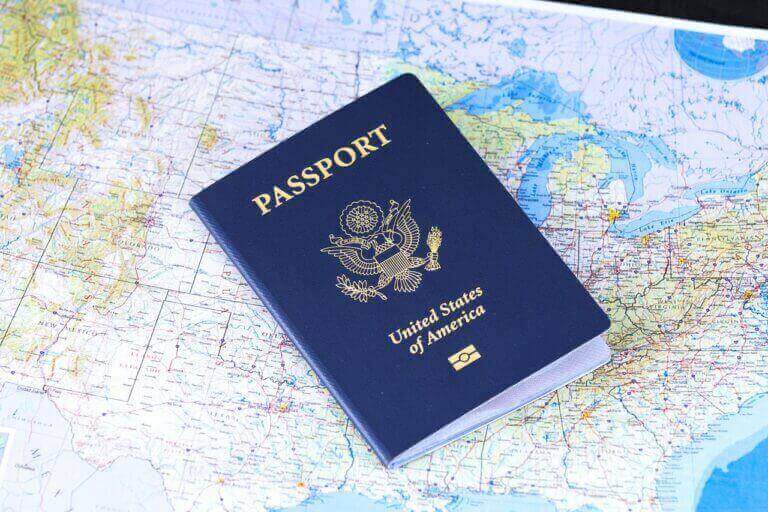Is Owning A Business In The United States Your Dream? An E-2 Visa May Be The Perfect Path For You.
The E-2 visa is one of the most popular investor visa that allows foreign citizens to purchase or create new business. The Treaty Investor Visas (E-2) are nonimmigrant visas for citizens of countries which the United States maintains a treaty of commerce and navigation (9 FAM 402.9-10). If you are coming to the United States to develop and direct the operation of an enterprise in which you have invested, or are actively in the process of investing a substantial amount of capital, you may qualify for a treaty investor visa (E-2). Your dream of becoming a business owner in the United States could become a reality by spending as little as $25,000.
Which Countries Have E-2 Treaty Investor Status?
The following countries have E-2 Treaty Investor Status: Albania, Argentina, Armenia, Australia, Austria, Azerbaijan, Bahrain, Bangladesh, Belgium, Bolivia, Bosnia & Herzegovina, Bulgaria, Cameroon, Canada, Chile, China (Taiwan), Colombia, Congo (Brazzaville), Congo (Kinshasa), Costa Rica, Croatia, Czech Republic, Denmark, Ecuador, Egypt, Estonia, Ethiopia, Finland, France, Georgia, Germany, Grenada, Honduras, Iran, Ireland, Italy, Jamaica, Japan, Jordan, Kazakhstan, Korea (South) Kosovo, Kyrgyzstan, Latvia, Liberia, Lithuania, Luxembourg, Macedonia, Mexico, Moldova, Mongolia, Montenegro, Morocco, Netherlands, Norway, Oman, Pakistan, Panama, Paraguay, Philippines, Poland, Romania, Serbia, Senegal, Singapore, Slovak Republic, Slovenia, Spain, Sri Lanka, Suriname, Sweden, Switzerland, Thailand, Togo, Trinidad & Tobago, Tunisia, Turkey, Ukraine, United Kingdom and Yugoslavia.
How Do I Qualify For The E-2 Visa?
To be eligible for an E-2 visa to run your U.S. business, the following factors must be satisfied:
- You Must Possess The Nationality of A Treaty Country
You must possess the nationality of the treaty country. Not all countries have a treaty with the U.S. for the E-2 visas. For example, India, Brazil and China do not have E-2 visas. However, if you hold dual citizenship from a country that maintains an investor treat with the Unites States, you may apply for the E-2 visa. For instance, the United States and Brazil do not have such a treaty, but if you are a Brazilian citizen who also holds dual citizenship from Spain (a country with which the United States does have a treaty), you may apply for an E-2 visa.
The E-2 visa category for Israelis is not effective yet. According to the Israel-America Chamber of Commerce, it is expected that all procedures will be place in the next couple of months and then investors may start applying for E-2 visa. The Embassy will issue a press release as soon as the E-2 investor visa is available to Israeli nationals. However, if you are an Israeli and hold one passport from a Treaty country, you may apply for the E-2 visa in Tel Aviv.
- You Must Have Invested or Be Actively In the Process of Investing
The concept of “investment” and “In the Process of Investing” is assessed based on the nature of the investment transaction. To satisfy this element, you must meet additional requirements:
- a) You Must Show Legitimate Possession and Control of the Funds
The investor must show that funds have been obtained from legitimate means and that the funds have not been obtained, directly or indirectly, from criminal activity. The funds may constitute an E-2 investment, if the investor can show that the funds have been received from savings, gifts, inheritance, contest, sales of property, loans, sale of business or other legitimate means, and that the investor has control and possession over the funds. For some countries, this can be difficult to proof if records are not available or the country is subject to a high degree of corruption.
- b) You Must Show The Investment is “At Risk” and Irrevocably Committed
An investment is the treaty investor’s placing of capital, including funds and other assets, at risk in the commercial sense with the objective of generating a profit. The capital must be subject to partial or total loss if the investment fails. Only personal assets are considered funds at risk. The funds must be committed to the investment, and the commitment must be real and irrevocable. For instance, a purchase of a business that qualifies for E-2 status may be conditioned upon the issuance of the visa. Despite the condition, this constitute a commitment if the assets to be used for the purchase are held in escrow for release or transfer only on the condition being met. Thus, the investor must have reached an irrevocable point to qualify.
Indebtedness secured by the assets of the business does not qualify as an investment, as it fails the “at risk” test. This is true even where some personal assets in addition to the assets of the business secured the indebtedness. Only indebtedness secured by your own personal assets or unsecured loans are considered qualifying investments, since you risk the funds in the event of business failure.
- The Investment Must Be Substantial
No set dollar figure constitutes a minimum of investment to be considered “substantial” for E-2 visa purposes. The actual amount depends on the nature of the business and other factors such as venue and filing location. The lower the cost of the enterprise, the higher, proportionately, the investment must be to be considered substantial. While a manufacturing business might easily cost millions of dollars, the cost of purchasing or establishing a consulting firm may be relatively low. In addition, you must show that the business is, or soon will be, a successful enterprise. Thus, your investment could be as low as $50,00 (very rare) or as high as millions.
- Your Investment Must Be More Than a Marginal.
This means that the business must generate significantly more income than just to provide a living to you and family, or the business must have a significant economic impact in the United States. A good business plan that shows you will hire employees in the future or a growth within five (5) years from the date the treaty investor’s E-2 classification begins may meet the marginality requirement.
- You Must Be in a Position To “develop and direct” the Enterprise.
One of the ways to proof this element is to show that the investor has control over the business. If the investor owns at least 50% of the business and does not assign control over that portion to someone else, or if the investor is an executive or manager who possesses control over the business’ operations, then the ability to direct and control the business can be established. In other words, you must show that you direct and run the business.
- You Must Intend to Depart the Unites States When the E-2 Status Terminates.
This is not a difficult test to meet. You must sign a document that indicates you plan to return home once your visa terminates. Unlike many other visas you do not have to show any ties to your home country and you do not have to have a residence abroad that you do not intend to abandon. You may sell your home and move all household effects to the U.S.
How Long Can I Stay On The E-2 Status In The U.S.?
You may reside in the U.S. as long as you continue to meet E visa qualifications. Thus, there is no limit on renewals, so long as you continue to qualify.
What Is The Maximum Length For which An E-2 Visa Can Be Issued?
In many cases, a maximum length for which an E-2 visa can be issued is 5 years. However, whether to issue for that length of time is solely the judgment of the consular officer deciding your case. The length of the E-2 visa depends also on the reciprocity agreement between the countries. (in most cases is 5 years but for some countries is as low as 3 months). An E-2 visa holder, when entering the United States, will initially be given a two-year period of stay.
Can My Dependents Join Me To The U.S.?
Yes. Dependents include only spouse and unmarried children under age 21. Your dependents can follow you in the U.S. and their nationality need not be the same as yours, the treaty investor. For instance, let’s say that you are a national of the country of Z that has an E-2 treaty with the U.S. Your wife and child are nationals of the country of Y which has no treaty with the U.S. Your wife and child would, therefore, be entitled to derivative status and receive the same reciprocity as you, the principal E-2 visa holder.
Can My Spouse Work In The U.S.?
Yes. A spouse of an E-2 visa holder can work with an employment authorization document (EAD). Once the spouse enters the U.S., he/she must file an I-765 application with the U.S. Citizenship and Immigration Services (USCIS). There is no specific restriction as to where the E-2 spouse may work.
Can I Apply For The E-2 Status From Within The United States?
Yes. If you are currently in the United States in a lawful nonimmigrant status such as TN, F, H-1B etc, you may file Form I-129, Petition for Nonimmigrant Worker with USCIS, to change to an E-2 status. However, if you travel abroad, you will still need to apply for an E-2 visa directly to the U.S. Embassy to re-enter the U.S. on the E-2 status.
How Can I Apply From Outside The United States?
A petition for an E-2 classification may not be sent to USCIS if you are physically outside the United States. Typically, you will apply directly to the US Embassy in the country of your nationality or where you have a legal residence.
To find out more about the E-2 investor visa and other immigration services, contact Apostol Law Firm. Contact us at 407-258-3344 or by email at flory@apostolvisa.com.
________________________________________________________________________________________________________________
Apostol Law Firm LLC has provided this website and its contents as a public service for information purposes only, and it is not intended to represent legal advice or counsel. Nothing on this website, associated pages, documents, comments, answers, e-mails, articles or other communications should be taken as legal advice for any individual case or situation. The responses and information are intended to be general and should not be relied upon for any specific situation. For legal advice, consult an experienced immigration attorney. Your use of this site and its contents does not construct a client-lawyer relationship with the attorney at the Apostol Law Firm. Past results are no guarantee of future results and prior results do not imply or predict future results. Each case is different and must be judged on its own merits. Our firm limits its practice strictly to immigration law, a Federal practice area.










